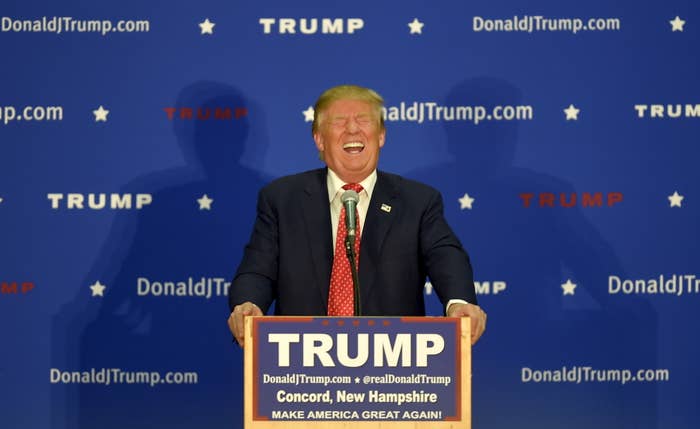
Donald Trump, whose promises to bring manufacturing jobs back to the United States from China and Mexico have been a cornerstone of his campaign, wrote in his 2011 self-help book that the industrial economy was gone and never coming back.
"Since the market crash that began in 2007, the biggest crash since the Great Depression, many have been waiting for the economy to come back," writes Trump with Robert Kiyosaki, with whom he teamed up with to author Midas Touch: Why Some Entrepreneurs Get Rich — and Why Most Don't. "The economy will come back, but it will not be the same economy. The old economy of the Industrial Age is dying, and a new economy of the Information Age is emerging. The rules of this new economy, an international economy, will not be the same."
"And the old ideas from the Industrial Age — job security for life, pensions, benefits, and labor unions — will not be able to survive in our new Information Age," continues the pair in their co-signed introduction. "Many of today's Fortune 500 businesses that were born in the Industrial Age will fade away. The Fortune 500 companies of tomorrow will emerge from this crisis, led by a new era of entrepreneurialism and a new class of entrepreneurs."
The change is one Trump links, like many historians, to the year 1989 and the commercialization of the Internet.
"The world changed in 1989, the year the Berlin Wall came down and the World Wide Web went up," writes Trump. "Those events signaled the end of the Industrial Age and the beginning of the Information Age. Today, your competition is everywhere. Your competition is in everyone's home, office, and cell phone. The cyber world of "Free" is taking down one-time mega-brands such as TIME magazine, because TIME has no idea how to compete in our new world. On top of that, technology speeds up transaction time. The reason we have 20-year-old billionaires and 50-year-old unemployed, college-educated people is because businesses in the cyber-world can sell to more people faster for lower prices and with fewer employees."
During his presidential campaign, Trump has repeatedly attacks U.S. trade deals for negatively impacting American workers, and has lamented the collapse of domestic manufacturing, saying several times, "We don't make anything anymore."
